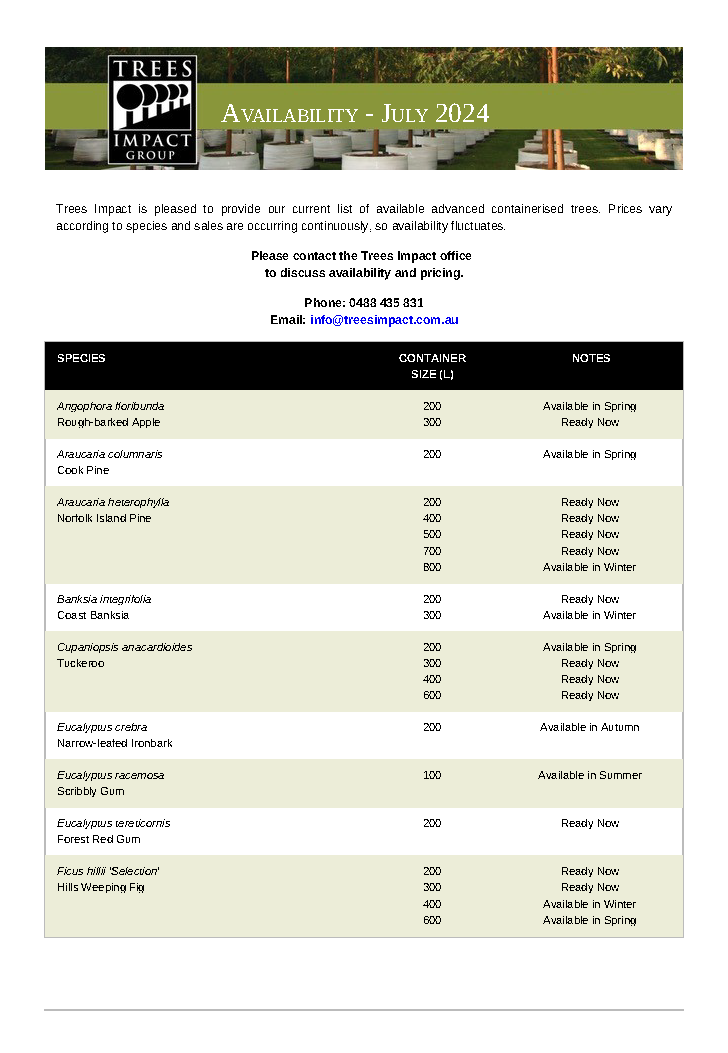Holding Trees When Delivery is Deferred
(Based on NGIA Recommended Best Practice 2017)
Holding Fees
- Holding Fees are levied and payable monthly to Trees Impact (the “Supplier”) to cover the ongoing care and maintenance costs when trees are ready but delivery is delayed.
- Holding Fees are payable to the Supplier only when:
– plants on order are ready for delivery;
– the nominated delivery period has expired; and
– delivery has been deferred by the Customer. - If plants are ready for delivery and the whole or part of the order is delayed for more than 30 days beyond the nominated delivery date, then the customer will be contacted to arrange ongoing holding and management of undelivered plants (including the possible need to pot the plants up to bigger containers) having regard to their continuing quality and well-being in the light of updated delivery expectations.
- The duration of Holding Fees will depend on the particular plants and the Customer’s project timing. As a guide, depending on the seasons (eg including over winter) indicative maximum holding periods for various plant sizes after they have reached readiness for delivery could possibly be in the order of three to five months; but often much less depending on circumstances. After that time, if not planted or moved to bigger containers, they will begin to deteriorate. See ‘Potting Up Trees When Delivery is Deferred’
- Monthly Holding Fees will be incurred and payable monthly in accordance with then current rates.
- Plants delivered on or before the 11th of any month will be exempt from charges for that month; plants delivered after the 11th of the month will incur holding charges for the whole month.
- Holding charges are not part-payment for the trees; they are to cover the grower’s costs to continue accommodating and caring for the trees. The charges are intended to compensate the nursery firstly for ongoing labour and inputs needed to maintain the trees in good condition and ready for delivery when the customer is ready. But also, and significantly, the charges are to cover:
- the grower’s opportunity costs attributable to the spaces in the nursery continuing to be occupied and unavailable for new production,
- the grower’s opportunity costs attributable to payment for the undelivered trees remaining outstanding for longer than budgeted, and
- the costs to the grower arising when undelivered trees have a domino effect of disrupting planned production programs.
- These costs are real and considerable. Holding charges in these circumstances are commonly applied throughout our industry and are endorsed as ‘best practice’ by the Nursery and Garden Industry Association.
